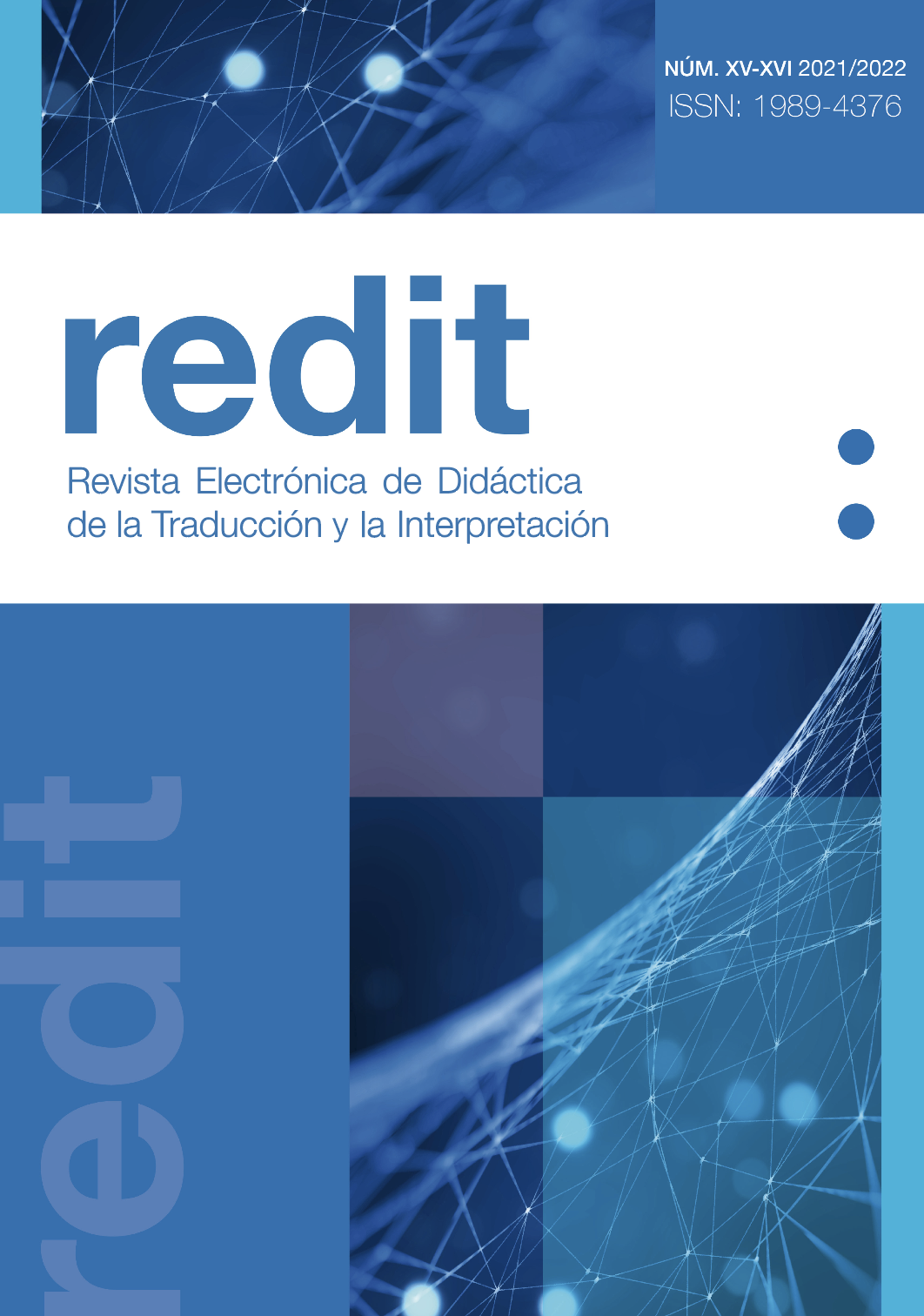Translation Teachers ´ Competences at the School of Translators and Interpreters of Beirut (ETIB) Compared to the EMT Translators Trainer’s Profile Framework. Approaches and Perspectives
DOI:
https://doi.org/10.24310/REDIT.2022.v1iXV-XVI.16627Keywords:
competences, teaching, translationAbstract
Reflecting on the translation teaching competence at university level has become a need and a necessity in a context of globalization and digital revolution, in order to meet the challenge of excellence in an increasingly demanding labor market. The School of Translators and Interpreters of Beirut (ETIB), a member of EMT network, conducted an empirical research that identified 64 competences required from its instructors. For a better alignment with the standards and requirements of the EMT, and in order to highlight the specificities of ETIB as a higher education institution, an effort to reconcile the competences of ETIB’s instructors with the competences listed in the EMT Translator Trainer Profile framework seems to be essential. Translator Trainer Profile framework.
Downloads
Metrics
References
Bailleul, M., & Obajtek, S. (2018). La bienveillance: un dilemme de travail pour l’enseignant novice? De la prescription aux compromis opératoires réalisés dans sa conduite de classe. Questions vives recherches en éducation, (29). https://doi.org/10.4000/questionsvives.3237
Colina, S. (2003). Translation Teaching: from Research to the Classroom - Teacher’s Handbook. McGraw-Hill Higher Education.
Creswell, J. W. (2008). Research design: qualitative, quantitative, and mixed methods approaches (3.ª ed.). SAGE Publications.
Creswell, J. W. (2012). Qualitative Inquiry & Research Design: Choosing Among Five Approaches (3.ª ed.). SAGE Publications.
Davidenkoff, E. (2014). Le tsunami numérique: éducation, tout va changer! Êtes-vous prêts? Stock.
Gouadec, D. (2002). Profession traducteur. La Maison du dictionnaire.
Gouadec, D. (2007). Translation as a Profession. John Benjamins Publishing.
Hurtado Albir, A. (2008). Compétence en traduction et formation par compétences. TTR, 21(1), 17?64. https://doi.org/10.7202/029686ar
Kelly, D. (2005). A Handbook For Translator Trainers: A Guide to Reflective Practice. St. Jerome.
Kelly, D. (2008). Training the Trainers: Towards a Description of Translator Trainer Competence and Training Needs Analysis. TTR, 21(1), 99?125. https://doi.org/10.7202/029688ar
Marquis, N. (2016). Performance et authenticité, changement individuel et changement collectif : une perspective sociologique sur quelques paradoxes apparents du «développement personnel». Communication & management, 13(1), 47?62. https://doi.org/10.3917/comma.131.0047
Massey, G., & Ehrensberger-Dow, M. (2011). Technical and Instrumental Competence in the Translator’s Workplace: Using Process Research to Identify Educational and Ergonomic Needs. ILCEA, (14). https://doi.org/10.4000/ilcea.1060
Massey, G., Kiraly, D., & Ehrensberger-Dow, M. (2019). Training Translator Trainers: An Introduction. The Interpreter and Translator Trainer, 13(3), 211?15. https://doi.org/10.1080/1750399X.2019.1647821
Najm, P., & Abou Fadel Saad, G. (2022). Les compétences des enseignants de traduction au XXIème siècle: Etude empirique qualitative sur le cas de l’Ecole de traducteurs et d’interprètes de Beyrouth (ETIB). Lebende Sprachen, 67(2), 414-431. https://doi.org/10.1515/les-2022-1006
Pourtois, J.-P., & Desmet, H. (2012). L’éducation postmoderne (3.ª ed.). Presses Universitaires de France.
Rached, P., & Gharib, Y. (2020). L’accompagnement scolaire: effet à double tranchant sur l’identité des adolescents?. Carrefours de l’éducation, 50(2), 107?22. https://doi.org/10.3917/cdle.050.0107
Downloads
Published
How to Cite
Issue
Section
License

Este obra está bajo una licencia de Creative Commons Reconocimiento-NoComercial-SinObraDerivada 4.0 Internacional.






29.png)
